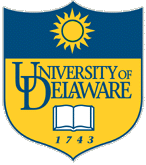
INTRODUCTION TO LABORATORY INSTRUCTION
Home Page - FALL 2005
1 Credit, Pass-Fail
8:00 - 9:15 AM Tuesday, 236 Alison Hall

|
INTRODUCTION TO LABORATORY INSTRUCTION Home Page - FALL 2005 1 Credit, Pass-Fail 8:00 - 9:15 AM Tuesday, 236 Alison Hall |
Graduate teaching assistants
have a unique and significant impact on undergraduate science education
at the University of Delaware. Thus, it is essential that new teaching assistants
be prepared and supported so that they can fulfill their responsibilities
fully. Introduction to Laboratory Instruction is part of that mission.
This web-site will be up dated frequently and will become a resource for
graduate teaching assistants in Biology and Chemistry. Please consult it
frequently.
Instructor: Prof. Hal White
Office:
203 Brown Laboratory
Phone:
831-2908
E-mail:
halwhite at udel.edu
Brief
Course Description:
Being a new Teaching Assistant
(TA) in a biology or chemistry laboratory of 20 undergraduates requires
preparation not only in the subject matter but also in methods of instruction.
Introduction to Laboratory Instructionis not a course devoted to
biology or chemistry content. Rather, it focuses on teaching and especially
learning. It is dedicated to preparing first-time TAs to fulfill
their roles in undergraduate teaching laboratories. Issues relating to specific
laboratory exercises and course content are the responsibility of the various
course instructors. Among the topics and issues addressed are:
• learning styles and learning theory,
• personality
types of students and teachers,
• biological and chemical hazards and laboratory safety,
• intellectual
development in the college years,
• dealing with misconceptions,
• ethics and academic dishonesty,
• asking good questions and constructing good quizzes,
• being fair in grading and in the laboratory,
• problem-based learning and other
cooperative learning strategies,
• recognizing problems and resolving conflict,
• time management in and out of the laboratory,
• being a learning facilitator rather than an information dispenser,
• leading managing pre-laboratory discussions,
• library resources for science education.
In addition, many graduate
students serve unofficially as research mentors to undergraduate students
in research laboratories. Starting in the Fall 2005, several sessions in
the later half of this course will address issues of mentoring research students
in line with the publication, Entering
Mentoring.
Who
should take this course:
All new Chemistry graduate
students who are first-time teaching assistants must take Introduction
to Laboratory Instruction starting in the Fall of 2002. All new Biology
graduate students who are first-time teaching assistants are strongly recommended
to take this course. Because this course has a significant in-service component,
new graduate students who are not teaching, should defer taking the course
to when they become a TA.
Background:
Financial support and incentives
for offering this course come from the Howard
Hughes Medical Institute (HHMI) and their four-year Undergraduate
Biological Sciences Education Grant to the University of Delaware.
The HHMI Undergraduate Program at the University of Delaware is dedicated
to "stimulating attitudes of inquiry" in the classroom and in the laboratory,
and among students and faculty at all levels. Traditional methods of instruction
(e. g. "cookbook laboratories") focus on transmission of information rather
than cultivating curiosity and conceptual understanding. One of the goals
of this course is to catalyze a shift in the perception of a teacher's
role from the being source of all knowledge to being a facilitator of student
learning.